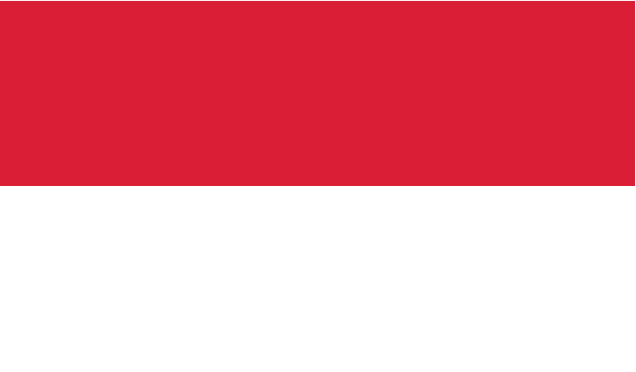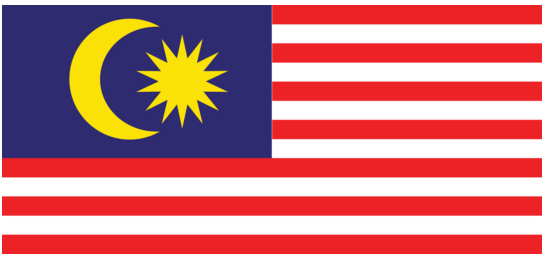
Best Export Opportunities in Indonesia (Updated)
best export opportunities Indonesia
Introduction to Export Opportunities in Indonesia
Nestled at the crossroads of Asia, Indonesia stands as a vital gateway for international trade and investment. Boasting abundant natural resources—such as palm oil, coal, nickel, and copper—it is a heavyweight in global commodity markets1. Combined with a booming digital economy and a young, dynamic population, the country offers an unparalleled springboard for businesses seeking to thrive in Southeast Asia.
Strategic Location and Natural Resources
Indonesia’s enviable location positions it as a natural bridge connecting Asia, Europe, and the Americas, cementing its status as a pivotal hub for global commerce. The nation is blessed with a wealth of natural resources, forming the backbone of its economic resilience and export potential. Take coal, for example: it alone generated a staggering $50 billion in export earnings in 2024, with key destinations including China, India, and Japan3. This solid resource base continues to fuel lucrative opportunities for export-driven industries.
Thriving Digital Economy
The digital economy in Indonesia is on a meteoric rise, bolstered by a surging middle class and rapidly deepening internet penetration. This vibrant ecosystem has become a hotspot for startups, unlocking significant opportunities in sectors like e-commerce, fintech, and digital services. With the government prioritizing digital infrastructure and championing innovation, this landscape is ripe for international partnerships, creating a fertile ground for cutting-edge trade and investment ventures.
Economic Growth and Forward-Thinking Trade Policies
Indonesia is on a mission to accelerate economic growth by pushing its export boundaries—targeting a 7.1% increase in exports by 2025, a leap towards $294.45 billion1. To achieve this, the government is rolling out initiatives to elevate the quality of export goods and foster robust domestic collaboration. These efforts align with an ambitious economic growth objective of 8%2.
Further bolstering the country’s economic outlook is the newly introduced export proceeds retention policy, which will take effect in March 2025. This policy requires natural resource exporters to keep all export proceeds within Indonesia for at least one year, aimed at stabilizing the local currency and augmenting foreign exchange reserves3.
Conclusion
From its advantageous geography to its untapped digital potential and rich resource reserves, Indonesia offers a compelling proposition for businesses looking to expand their export footprint. As the country strengthens its economic policies and harnesses its natural and digital assets, it remains a cornerstone of opportunity for those eager to tap into Southeast Asia’s vibrant and fast-growing markets.
Benefits of Indonesia Joining BRICS for Exporters
As Indonesia places itself firmly on the path to becoming a dominant player in global trade, membership in an economic powerhouse like BRICS could open unprecedented opportunities for exporters. By fostering tighter economic collaboration with fellow developing nations, reinforcing its voice in global decision-making, and unlocking vast new markets, Indonesia could strengthen its export ecosystem and assert itself as a formidable force in international commerce. However, alongside these advantages lie challenges that require strategic vigilance and calculated policymaking.
Enhanced Economic Cooperation
By becoming a member of BRICS, Indonesia would solidify partnerships with some of the world’s most dynamic markets, including Brazil, Russia, India, China, and South Africa. Such alliances would provide fertile ground for intensifying cooperation in diverse sectors, such as technology, agriculture, energy, and manufacturing.
Imagine, for instance, a partnership with Brazil, where Indonesia could leverage Brazil’s advanced agricultural technology to revolutionize its farming sector and elevate its export capabilities in commodities like rubber or palm oil. Likewise, India’s extensive expertise in IT and digital innovation could help bolster Indonesia’s rapidly growing tech and startup ecosystem, already a shining star in Southeast Asia. These partnerships would enable the exchange of best practices, technology transfer, and supply chain integration that cater to mutual economic growth.
Moreover, collaboration within BRICS could propel Indonesia toward renewable energy initiatives, aligning with global sustainability goals while enhancing exports in this increasingly critical sector. Joint ventures in solar technology or geothermal energy could provide mutually beneficial investments for both Indonesia and BRICS members, creating a ripple of cooperative progress.
Amplified Voice in Global Governance
Joining BRICS would hand Indonesia a megaphone on the world stage, allowing it to champion issues that resonate deeply within the developing world. Within BRICS, Indonesia could actively influence global governance structures, advocate for trade reforms, and push for initiatives that empower emerging economies rather than maintaining systems that favor only developed nations.
Participation in key forums and summits would allow Indonesia to weigh in on pressing global challenges, from climate change to economic inequality. Such advocacy bolsters Indonesia’s position not just as a regional economic leader but as a representative voice for developing economies from the Global South. A larger platform also grants Indonesia the leverage to negotiate trade deals on more favorable terms, aligning global trade policies with both national and regional interests.
Moreover, Indonesia’s strategic role within BRICS could resonate beyond policies and into perception: cementing its status as a bridge builder between developed and developing nations. Such a role could further elevate Indonesia’s reputation as a diplomatic and economic powerhouse, opening doors to collaborations far beyond the confines of BRICS.
Expanded Market Access
With BRICS nations representing over 40% of the world’s population and contributing a combined GDP exceeding $3 trillion, Indonesia’s exporters would gain unparalleled access to massive consumer bases in these regions. The demand for commodities Indonesia already excels in—such as palm oil, coal, and fisheries products—would find ready markets within BRICS nations.
Take India, for instance, both of which are voracious consumers of palm oil and energy resources. Strengthened economic alliances could drastically reduce trade barriers, making it easier and more cost-effective for Indonesian businesses to tap into these high-demand markets. Additionally, Indonesia’s expanding manufacturing sector could benefit from targeting markets like Brazil and South Africa, where demand for manufactured goods continues to rise.
Enhanced market access doesn’t stop at products—it also encompasses services. With Indonesia actively developing expertise in fintech, e-commerce, and digital entrepreneurship, BRICS could provide the perfect audience for exporting digital solutions, especially to under-digitalized regions within member countries.
Potential Challenges
However, entering the BRICS circle isn’t without its hurdles. Aligning with an economic bloc of diverse nations means re-evaluating domestic trade, legal, and policy frameworks to harmonize with member countries. Regulatory reforms, particularly in intellectual property rights, taxation, and labor laws, may be necessary but could face resistance from various domestic stakeholders.
Geopolitical complexities within the BRICS group represent yet another challenge that cannot be ignored. Indonesia would need to navigate competing interests between members—such as China and India—strategically preserving neutrality while advocating for its own national priorities. Moreover, Indonesia must ensure that its inclusion remains beneficial rather than becoming overshadowed by major players like China and India, whose influence already dominates the bloc.
Lastly, maintaining a balance between BRICS commitments and relationships with non-BRICS partners (e.g., the United States, Europe, ASEAN) could prove diplomatically challenging. As a key member of ASEAN, Indonesia would need to tread carefully, ensuring its focus on broader global trade opportunities doesn’t diminish while leaning into BRICS investments.
Opportunities and Long-Term Prospects
Strategically overcoming these challenges would unlock a plethora of opportunities for Indonesia’s business ecosystem. Diversifying export destinations would help Indonesia reduce dependence on traditional trading partners, insulating its economy from volatile market shocks. The alliances forged within BRICS could catalyze knowledge transfer, facilitate infrastructure investment, and create ripple effects throughout Indonesia’s industries—strengthening everything from commodity exports to advanced manufacturing.
Moreover, BRICS membership could align seamlessly with Indonesia’s own ambitions of becoming an economic superpower. Leveraging such an alliance would allow Indonesia to adopt global best practices, attract foreign direct investment, and evolve into a hub for innovation within Southeast Asia.
Final Thoughts
While Indonesia isn’t a member of BRICS yet, the implications of potentially joining such a bloc provide a thought-provoking lens into the country’s strategic future. By enhancing its partnerships, amplifying its influence on global governance, and tapping into vibrant new markets, BRICS membership represents an enticing path toward solidifying Indonesia’s status in global trade. Yet, success relies on carefully orchestrating domestic alignment, regional partnerships, and global cooperation.
In the grand scheme of Indonesia’s economic pursuits, fostering relationships with coalitions like BRICS offers thrilling possibilities. The ultimate prize for exporters? A more robust, diverse, and resilient trade framework, ensuring Indonesia thrives on the road to global economic leadership.
Top Export Sectors in Indonesia
Indonesia’s vibrant and diverse economy brims with export opportunities across key sectors. From agriculture to renewable energy, digital technology to infrastructure development, the nation’s export landscape is rife with growth potential, underpinned by robust government incentives and forward-looking policies. Below, we’ll explore these pivotal sectors, uncovering their trends, opportunities, and the strategic support driving their success.
Agriculture
Agriculture forms the beating heart of Indonesia’s economy, driven by powerhouse commodities like palm oil, rubber, and coffee. As the world’s top producer of palm oil, Indonesia reaps substantial earnings from its agricultural exports. The government is keen on positioning the sector for long-term growth by championing sustainability initiatives, such as improving palm oil production practices to meet stringent global environmental benchmarks. These efforts ensure the country retains its competitive edge in markets with eco-conscious consumers, particularly in regions like Europe.
Renewable Energy
Blessed with abundant natural resources, Indonesia is a hotbed for renewable energy investments, particularly in solar and geothermal power. With clear-cut goals to bolster renewable energy’s share in the national energy mix and reduce reliance on fossil fuels, the government has created a fertile investment climate. By offering tax breaks and simplifying regulatory frameworks, Indonesia encourages both domestic and foreign investors to develop pivotal infrastructure, like solar farms and geothermal facilities, to meet its energy targets.
Digital Technology
Indonesia’s digital economy is on an extraordinary ascent, powered by e-commerce, fintech, and digital services. A young, tech-savvy population and soaring internet penetration levels make the nation a breeding ground for innovation. Anchored by strategic initiatives such as the Indonesia Digital 4.0 program, the government is laying the foundation for digital transformation, propelling opportunities for investments in IT infrastructure, software solutions, and tech startups. With its dynamic energy, this sector promises remarkable potential for growth and profit.
Infrastructure Development
In its relentless drive toward modernization, Indonesia is doubling down on infrastructure development. Big-ticket projects, from high-speed rail systems to seaports and airports, are reshaping the nation’s economic landscape. These ambitious undertakings require hefty investments in construction materials, advanced machinery, and engineering expertise, opening doors for global businesses keen to participate in one of Southeast Asia’s largest infrastructure overhauls. The government’s commitment to bolstering transportation, housing, and public facilities has made this sector a prime focus for investors.
Government Incentives and Market Trends
To captivate investors, Indonesia has rolled out an attractive suite of incentives, including tax holidays, slashed import duties, and streamlined licensing procedures. Market trends underscore a rising appetite for sustainable goods and green innovations, aligning with Indonesia’s strides in renewable energy and responsible agriculture. Similarly, the government’s emphasis on digital transformation is certain to fortify fintech, e-commerce and related industries, spelling big opportunities for entrepreneurs and investors alike.
Investment Opportunities
The breadth of investment possibilities across these sectors is staggering. In agriculture, advancements in sustainable farming technologies and yield-boosting innovations stand out. Renewable energy offers lucrative partnerships for large-scale solar and geothermal projects, tapping into the nation’s untapped potential. Within the tech space, the booming demand for fintech solutions, e-commerce platforms, and digital services is a greenfield opportunity for businesses seeking high growth returns. Infrastructure projects, meanwhile, demand heavy investments in construction expertise, materials, and technology, firming up its place as a cornerstone for long-term gains.
Indonesia’s export sectors offer an enticing landscape for businesses looking to establish or expand their presence in Southeast Asia. Thanks to visionary government support, burgeoning demand for sustainable and tech-forward solutions, and comprehensive investment frameworks, industries like agriculture, renewable energy, digital technology, and infrastructure development are brimming with promise. Investors who recognize the momentum and seize these opportunities stand to gain substantially in the years to come.
Navigating Export Regulations and Challenges in Indonesia
Indonesia’s thriving export market is a goldmine with unparalleled potential, juxtaposed against a labyrinth of regulations, evolving technologies, and geopolitical undercurrents. For businesses aiming to leverage Indonesia’s abundant resources and strategic location, understanding these nuances is non-negotiable. Here, we unravel the complexities of export regulations, technology export policies, and geopolitical forces, offering actionable insights to help exporters navigate these challenges seamlessly.
Export Regulations in Indonesia
Indonesia’s regulatory framework can be both a safeguard and a stumbling block, depending on how well businesses understand its intricacies. One standout policy—export proceeds retention—requires natural resource exporters to retain all earnings from exports domestically for a year. This bold move is designed to stabilize the Indonesian Rupiah and bolster foreign exchange reserves, injecting liquidity into the nation’s financial backbone. For businesses, mastering compliance with these policies isn’t just advisable—it’s critical to maintaining a smooth operational cadence.
But it’s not all stringent controls. Indonesia’s impressive portfolio of free trade agreements (FTAs)—including 19 bilateral and multilateral treaties—offers exporters a wealth of opportunities. Alliances with stalwarts such as ASEAN, China, Australia, and Japan are central to reducing trade barriers and tariffs, paving smoother routes into international markets. However, navigating these FTAs isn’t a one-size-fits-all endeavor. Each agreement comes with a web of clauses, making it imperative for businesses to analyze and adapt to the fine print to unlock maximum benefits.
Technology Export Restrictions
While Indonesia’s tech landscape is still uncharted territory compared to global powerhouses, the government’s focus on innovation is reshaping the export terrain. Through initiatives like Indonesia Digital 4.0, the nation signals its commitment to nurturing a booming tech ecosystem. But with opportunity comes responsibility. Exporters dealing in technology must tread carefully—ensuring intellectual property rights, data privacy laws, and cross-border tech compliance are thoroughly upheld.
Indonesia may lack the notoriety of jurisdictions with draconian export controls, but don’t mistake this for leniency. Staying vigilant and attuned to sector-specific regulations can mean the difference between thriving and stumbling in this fast-evolving market.
Geopolitical Dynamics
At the heart of Southeast Asia, Indonesia is a diplomatic juggernaut—its trade dictated as much by geography as by global politics. Membership in ASEAN already places Indonesia at the confluence of regional trade, but the country’s aspirations for deeper involvement, such as joining economic blocs like BRICS, hint at seismic shifts in its geopolitical trade narrative. Such expansions can broaden horizons while simultaneously introducing new layers of decision-making complexity for exporters.
Compounding this delicate balance are external pressures from global titans like the U.S. and China—key trading partners with competing interests. In times of escalating geopolitical tension, supply chains face disruptions, demand shifts, and tariff uncertainties. Forward-thinking businesses recognize the importance of being agile—ready to pivot strategies as winds of global politics shift.
Guidance for Businesses
Exporting to Indonesia is a journey with plenty of rewards for those who prepare well. Here’s how to overcome key challenges and position yourself for success:
- Stay Ahead of Policy Shifts: The regulatory landscape is fluid and fast-changing. Commit to staying constantly informed through government updates, industry bulletins, and trade forums. Proximity to information equips businesses to act quickly and decisively.
- Diversify Your Market Portfolio: Relying on one or two markets could make your business vulnerable to geopolitical flux or economic downturns. Spread your reach across diverse regions to hedge against risks and seize emerging opportunities.
- Prioritize Legal and Regulatory Compliance: When it comes to navigating Indonesia’s export retention program or satisfying intellectual property guidelines, there’s no room for error. Retain legal counsel or hire experts who can decode complex frameworks and mitigate the risk of compliance lapses.
- Forge Strong Partnerships: Working with experienced local partners can be a game-changer. They bring invaluable knowledge of domestic nuances—be it licensing, distribution channels, or cultural norms—that help smooth the road to market entry.
- Embrace Digital Transformation: Technology is your most powerful ally in this dynamic market. Invest in digital tools for real-time supply chain monitoring, streamlined compliance processes, and digital marketing insights tailored to export activities.
By implementing these strategies, businesses not only overcome challenges but set themselves up for sustainable, long-term success in Indonesia’s export market.
In summary, cracking the code of Indonesia’s export landscape isn’t about sidestepping its unique challenges. It’s about leveraging them as opportunities. By staying informed, expanding market horizons, channeling resources into compliance, building invaluable local alliances, and embracing technology’s limitless potential, businesses can rise above hurdles and unlock Indonesia’s position as a powerhouse in global trade.
Strategic Regions for Export and Investment in Indonesia
Indonesia, a sprawling archipelago with a remarkably diverse economic landscape, serves as a gateway to unique investment and export opportunities. Its vibrant cities and regions each present distinct advantages for businesses looking to establish a foothold in Southeast Asia. Among these, Jakarta, Bali, Surabaya, and Bandung stand out as prime destinations, each offering tailored advantages for specific sectors. From robust infrastructure to creative ecosystems, these regions equip export-oriented businesses with the tools to thrive in competitive global markets.
Jakarta: The Economic Nucleus
As the heartbeat of Indonesia’s economy, Jakarta holds unparalleled significance on the business map. This bustling metropolitan city doubles as the country’s financial center and a thriving commercial hub. Global investors and enterprises are drawn to Jakarta’s cutting-edge infrastructure, which includes modern office towers, extensive transport systems, and seamless access to major ports like Tanjung Priok—the busiest in the nation.
But Jakarta isn’t just about convenience; it also offers a strategic advantage for companies involved in finance, logistics, international trade, and e-commerce. The city’s robust business ecosystem, coupled with its connectivity to global markets, makes it an ideal location for firms aiming to scale operations regionally and internationally. For companies seeking a fast-paced environment with premium access to Southeast Asia’s largest economy, Jakarta is a clear frontrunner. However, navigating the city’s competitive landscape requires adaptability and an innovative edge.
Bali: A Creative and Tourism Dynamo
While Bali’s reputation as a world-renowned paradise for travelers precedes it, the island’s influence extends far beyond tourism. Over the years, Bali has transformed into a burgeoning hub for creative industries, carving out niches in digital entrepreneurship, fashion, media, and design. Entrepreneurs flock to Bali not just for its tropical allure but also for the ecosystem of innovation that has grown on the island.
Bali’s expat-friendly environment, thriving co-working spaces, and increasing support for creative startups have nurtured a dynamic blend of talent and community. Furthermore, the island provides opportunities for export-oriented businesses to tap into artisanal goods, cultural products, and globally inspired services. With its unique access to tourists and digital demographics, Bali offers fertile ground for businesses blending creativity with commerce. As disruptive as its surging creative economy may seem, Bali remains deeply rooted in the authenticity of its cultural heritage.
Surabaya: A Powerhouse in Manufacturing and Trade
Strategically situated in East Java, Surabaya ranks as a heavyweight in Indonesia’s industrial and manufacturing sectors. The city benefits from its proximity to the Port of Tanjung Perak, a key artery facilitating exports for industries spanning textiles, automotive parts, and heavy machinery. For export-oriented businesses looking to optimize supply chains, Surabaya’s robust logistics and access to skilled labor make it an undeniable asset.
More than just a manufacturing hub, Surabaya has also positioned itself at the center of technological and industrial innovation, with increasing government initiatives aimed at boosting trade and sustainability. Businesses venturing into Surabaya can leverage a business-friendly ecosystem that prioritizes efficiency, scalability, and access to vast regional markets.
Bandung: The Intellectual and Innovation Center
Bandung, affectionately known as the “Paris of Java,” strikes a compelling balance between charm and forward-thinking dynamism. The city, surrounded by lush greenery and cooler climates, enjoys a reputation as Indonesia’s education capital, thanks to its world-class universities and research institutions.
Bandung’s thriving pool of young talent and its ever-expanding tech startup scene are fertile grounds for innovation. The city’s focus on technology, digital transformation, and entrepreneurship makes it a natural fit for companies in software development, artificial intelligence, and fintech ecosystems. Additionally, Bandung’s unique textile and apparel sector offers opportunities for fashion businesses targeting niche export markets. Its strategic blend of creativity and technology positions Bandung as a key driver of sustainable innovation in the Indonesian economy.
Unlocking Export Potential Across Regions
While each region boasts varying strengths, they collectively form the backbone of Indonesia’s export economy. Here’s how these strategic areas support export-oriented businesses:
- Jakarta’s Comprehensive Infrastructure: Seamless logistics networks, financial institutions, and a pivotal role in international trade ensure operational efficiency.
- Surabaya’s Industrial Backbone: The city’s manufacturing power and access to one of Indonesia’s major ports are vital for export-heavy industries.
- Bali’s Cultural Creativity: Leveraging its tourism appeal, Bali enables global exports of distinctive, culture-rich products and services.
- Bandung’s Innovation Pipeline: A concentrated talent pool and a rising tech ecosystem fuel businesses in cutting-edge, exportable industries.
The Verdict: Diverse Pathways for Expanding Your Global Reach
Indonesia’s strategic regions are more than just geographical points on a map—they’re engines of economic progress, offering distinct investment advantages for businesses with export ambitions. By recognizing and aligning with the unique characteristics of Jakarta, Bali, Surabaya, and Bandung, companies can position themselves to thrive in one of the world’s fastest-growing economies.
For organizations thirsty to expand their global footprint, these dynamic regions serve as the ideal launchpads for success. They represent not just places to invest, but opportunities to innovate, adapt, and grow in an economy ready to embrace the future.
Conclusion: Unlocking Indonesia’s Export Potential
Indonesia’s export landscape is a vibrant mosaic of promise, shaped by its prime geographic position, abundant natural wealth, and a thriving digital economy. As the nation charts a course toward ambitious economic growth—targeting a 7.1% surge in exports by 2025—it cements its role as a cornerstone in global trade1. Government-driven initiatives, like the export proceeds retention policy, aim to stabilize the national currency and fortify foreign exchange reserves, bolstering the country’s economic resilience4.
Potential entry into influential economic blocs such as BRICS could further elevate Indonesia’s standing on the global stage, opening doors to new market opportunities in some of the world’s largest consumer bases2. High-potential sectors like agriculture, renewable energy, digital technology, and infrastructure are particularly attractive, buoyed by government-backed incentives and a growing commitment to sustainability3.
While navigating Indonesia’s regulatory framework—such as export proceeds requirements and restrictions on technology exports—can pose challenges, businesses savvy enough to adapt stand to reap long-term rewards4. Strategic hubs like Jakarta, Bali, Surabaya, and Bandung offer unrivaled advantages, from cutting-edge infrastructure to thriving ecosystems, ensuring that export-oriented ventures have fertile ground to flourish3.
Ultimately, tapping into Indonesia’s export potential is akin to uncovering a goldmine of opportunities for businesses eyeing global expansion. By mastering the nuances of Indonesia’s dynamic economic environment, leveraging its strategic advantages, and skillfully managing its regulatory demands, exporters can unlock exceptional growth in one of Southeast Asia’s most vibrant markets. As Indonesia strengthens its global partnerships and refines its economic strategies, it remains a highly attractive gateway for businesses seeking to engage with the region’s flourishing and fast-paced economies.
Exploring the Expertise of PONGO TECH
Elevating Export Strategies with PONGO TECH
In the vibrant landscape of Indonesia’s export market, aligning with innovative digital marketing solutions can significantly enhance a company’s global outreach. PONGO TECH specializes in delivering comprehensive live streaming operational services for e-commerce platforms, making it an integral partner for brands aiming to maximize their connectivity and sales in Southeast Asia. By utilizing advanced data-driven marketing strategies and leveraging influencer networks, PONGO TECH empowers businesses to navigate Indonesia’s export challenges effectively and seize emerging opportunities.
Why Partner with PONGO TECH?
PONGO TECH stands out as a leader in social media marketing across Southeast Asia, thanks to its dynamic integration of interactive live streaming as a sales channel. With a proven track record of connecting brands with influential content creators and facilitating real-time customer engagement, PONGO TECH has driven substantial sales growth for numerous top brands, including Xiaomi, Haier, and TCL. Their expertise not only amplifies brand presence but also builds lasting consumer relationships through authentic and relatable shopping experiences.
Solutions to Navigate Export Challenges
Navigating the complexities of Indonesia’s export landscape, such as stringent regulations and logistical issues, can be daunting. PONGO TECH provides brands with tailored marketing solutions that align with regional consumer behaviors and preferences, ensuring compliance while optimizing marketing impact. Through strategic collaboration and seamless e-commerce integration, PONGO TECH simplifies the process of entering new markets and enhances the overall effectiveness of digital campaigns.
Get Started with PONGO TECH
For businesses eager to leverage robust digital solutions and thrive in Indonesia’s export market, collaborating with a trusted partner like PONGO TECH could be pivotal. Their innovative approach and market expertise empower brands to break through in competitive industries with confidence. To explore how PONGO TECH can transform your business strategies, visit our Contact Us page to schedule a consultation.
 English
English 



